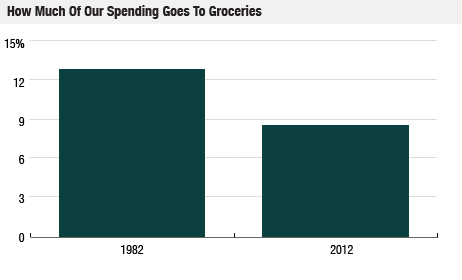For years, global economists have forecast a slowdown in China’s breakneck growth. Now that the deceleration is actually here, rich-world investors, companies and government officials, reliant on the Chinese juggernaut for their financial well-being, seem impatient for the revelry to resume, and are hoping that the Chinese government will follow up its stimulus of package of 2008-2009 with another generous injection of capital.
Source: Why China’s slowdown may get permanently worse — Quartz
Does an economy of 1.3 billion people with GDP of $5,500 per capita that needs half a trillion dollars in ‘surprise’ government spending on largely unnecessary infrastructure every four years in order to keep growing still count as ‘emerging?’
— Michael Parker, analyst with Bernstein Research
